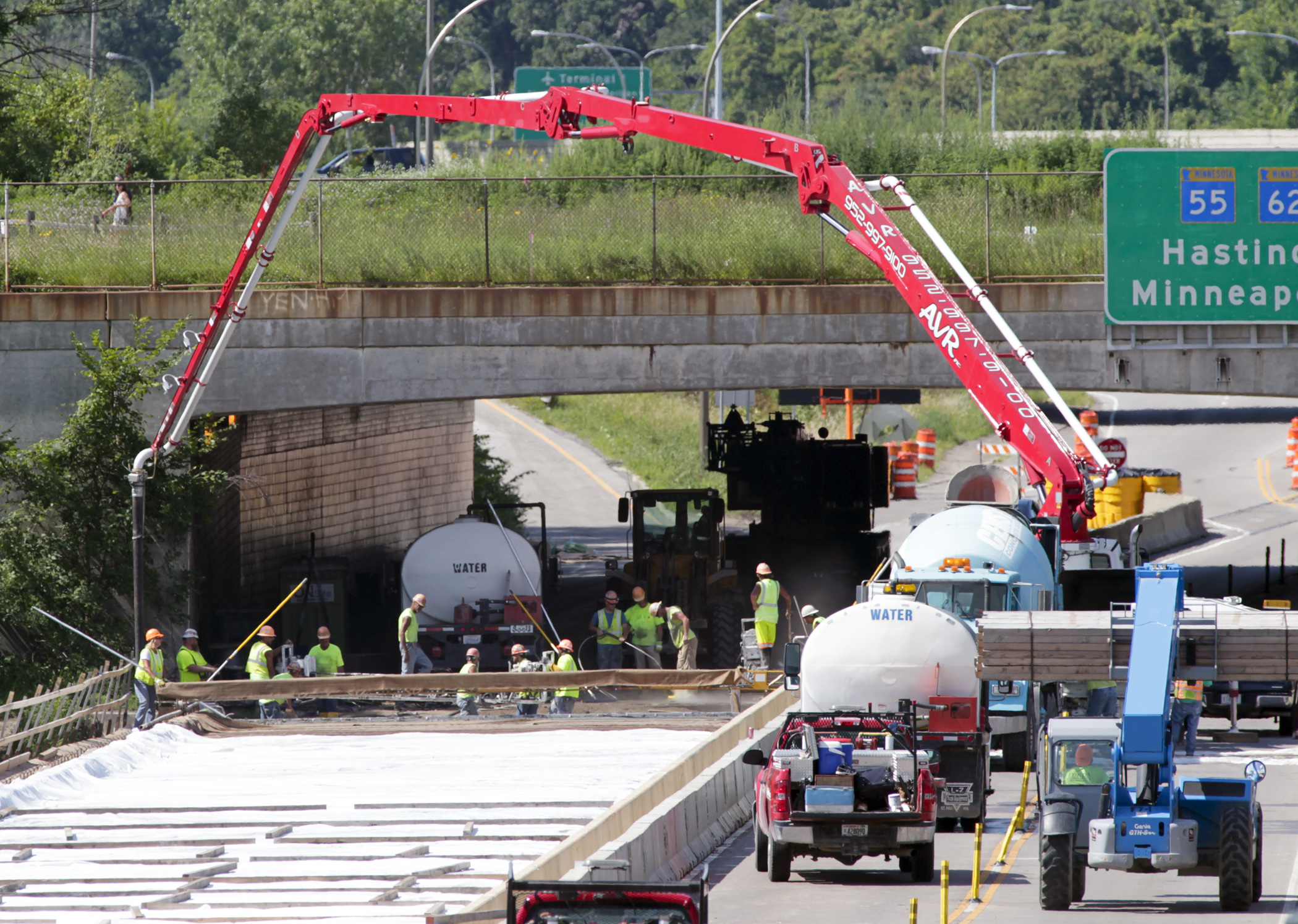Testifiers urge MN lawmakers to act fast on federal funds for road construction

Though winter seems firmly entrenched, Minnesota’s second season of road construction is fast approaching.
Lawmakers on one House committee are acting with a sense of urgency to unlock federal funds from the Infrastructure Investment and Jobs Act so state employees can start drawing up blueprints and hiring crews.
The House Transportation Finance and Policy Committee approved a bill Thursday to appropriate $315.5 million from the act to the Department of Transportation. The amount reflects federal funds currently accessible for, in part, the state’s roads, bridges and transit purposes.
The bill is next scheduled before the House Ways and Means Committee Jan. 17.
Sponsored by Rep. Erin Koegel (DFL-Spring Lake Park), HF26 would fulfill a fiscal year 2023 request for increased state road construction budget authority. This includes $235 million to restore Trunk Highway Bonds used as a state match for bridge, community resiliency and carbon reduction programs and to address inflationary impacts and gaps in existing projects, according to a presentation by MnDOT officials. There is also $80 million to fully fund the approved State Transportation Improvement Program.
Many speakers urged legislators to act quickly – not only to unlock this initial phase of federal funds but to position the state to maximize future federal monies. The law is expected to ultimately provide $4.8 billion of federal funding over the next five years to upgrade Minnesota’s transportation infrastructure.
“If we had this authority last year, we’d be building roads today,” said Jason Duininck, director of business development for Duininck Inc. “If it’s not done quickly, we might miss another construction season.”
Rep. Bjorn Olson (R-Fairmont) cautioned against a single-minded pursuit of federal dollars that might displace easier, less expensive options.
For example, representatives for a utility in his district told Olson a charging station would cost $20,000 and require a $7,500 match including grant applications but the utility could do the work itself without taxpayer money for $5,000.
“I’d say four charging stations for the price of one is a good deal,” he said.
Related Articles
Search Session Daily
Advanced Search OptionsPriority Dailies
Legislative leaders set 2026 committee deadlines
By Lisa Kaczke Legislative leaders on Tuesday officially set the timeline for getting bills through the committee process during the upcoming 2026 session.
Here are the three deadlines for...
Legislative leaders on Tuesday officially set the timeline for getting bills through the committee process during the upcoming 2026 session.
Here are the three deadlines for...
Latest budget forecast projects nearly $2.5 billion surplus, but red ink down the road
By Mike Cook Three weeks before Christmas, state budget officials provided some merriment to Minnesotans. However, Grinch-like transformations lurk.
Released Thursday, the November ...
Three weeks before Christmas, state budget officials provided some merriment to Minnesotans. However, Grinch-like transformations lurk.
Released Thursday, the November ...